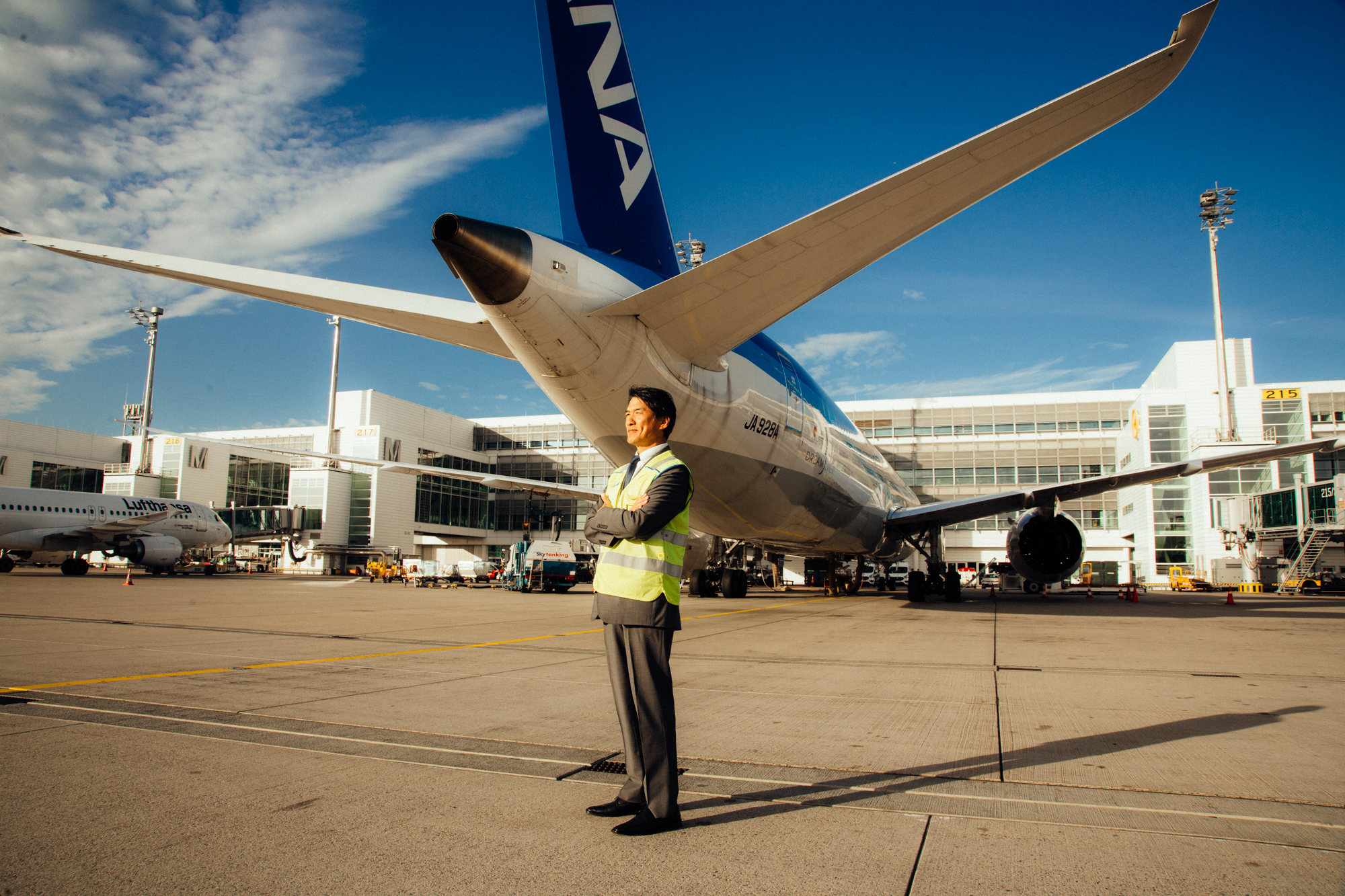We are living in an era where human contact and mobility are limited. Everything can be purchased online, and logistics is the hidden force that keeps e-commerce going. And demand has risen even more during the Covid pandemic, both in the B2B and B2C sector. The Japanese company Yusen Logistics provides transport services for materials, components and finished products from all over the world and delivers them to various suppliers. We talked with Toshikazu Shiota, Managing Director of Yusen Logistics (Deutschland) GmbH, the German subsidiary of the company, about how Yusen Logistics is developing its role as a logistics service provider in the German market, the evolution of its business, and its vision for the future. The company has just opened a new warehouse of 20,000 square meters in Dusseldorf Reisholz. From November 2021, it will have around 160,000 square meters of warehouse space across Germany.
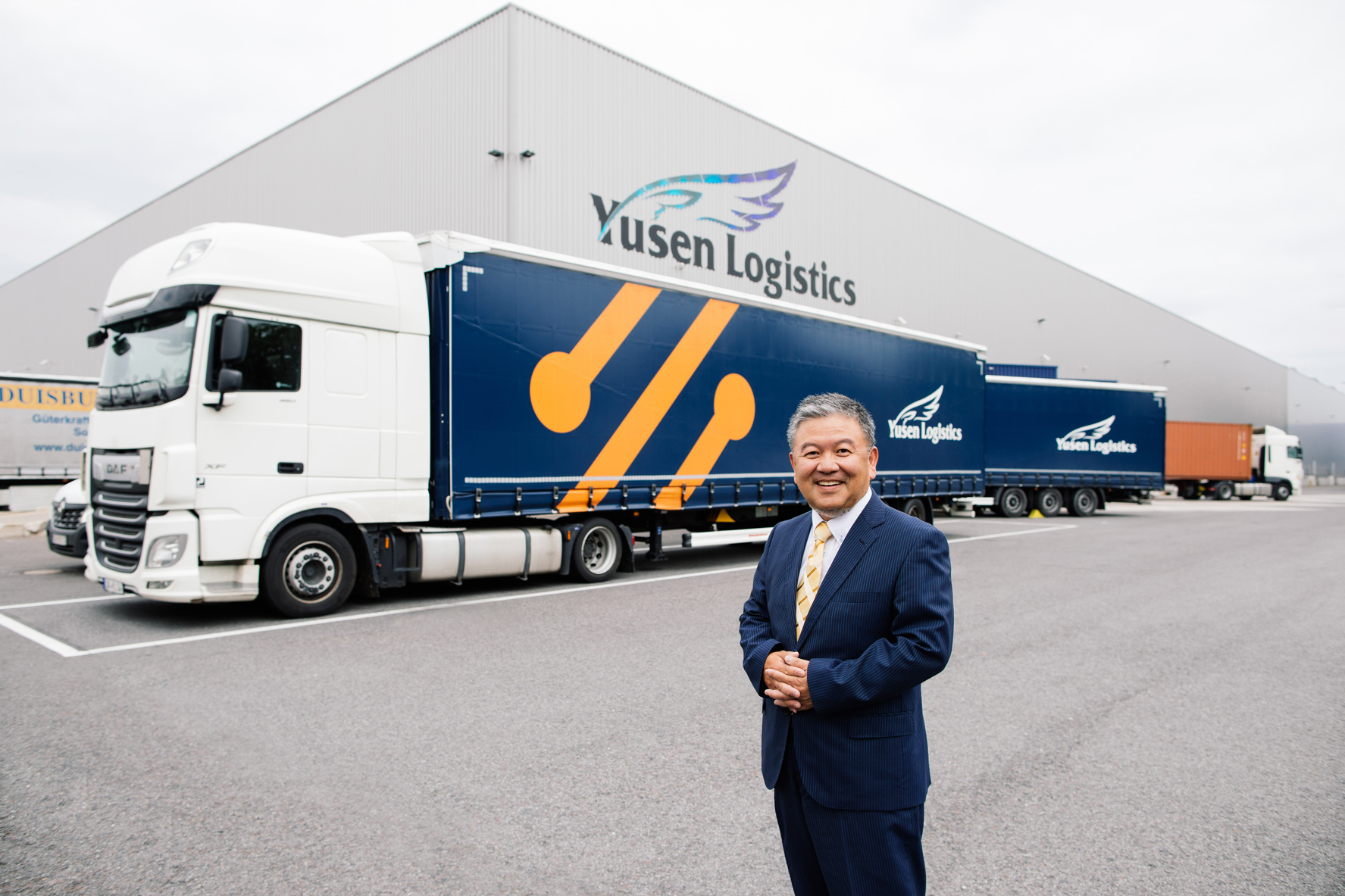
J-BIG: First, for those who are not familiar with your company, please introduce your business.
Toshikazu Shiota: Yusen Logistics is a supply chain logistics company with logistics operations in 47 countries and regions around the world. We are engaged in three main businesses, with the mission of becoming a supply chain logistics company that is recognized and trusted throughout the world. The first is the freight forwarding business. Here, we provide door-to-door transportation services and procure space from airlines or shipping, railroad, and trucking companies, which are the actual carriers of ocean, air, rail, and truck cargo. This includes Supply Chain Solution or SCS and functions like “Control Towers” as well as “Origin Control Management”. The needs and demands of our customers vary from one to another. The second business segment is to file various reports with the authorities on behalf of our clients, especially for customs clearance. In international trade across countries, various declarations to customs and to quarantine stations are required at the time of export and import, and we handle these declarations on behalf of our customers. The third is warehouse operations. The supply chain is not only about transportation. Storage and inventory management is also an important part of logistics. We provide our customers with an integrated Land Transport Service that includes storage, inventory management, and final destination delivery in each of the countries in which we operate. All three main businesses make full use of modern IT solutions to achieve the highest levels of professionalism in logistics solutions.
J-BIG: Please also tell us about the history of Yusen Logistics.
Toshikazu Shiota: International Travel Agency Inc., the predecessor of the current company Yusen Logistics Co., was established on February 28th, 1955.
On March 1st, 1955, the day after its establishment, International Travel Agency began passenger and cargo sales operations as an authorized agent of IATA, the International Air Transport Association. In 1959, Nippon Yusen Kabushiki Kaisha (NYK), the current parent company, increased its stake in the company to over 50 percent. It thus became the largest shareholder and renamed itself Yusen Air & Sea Service Co, Ltd.
From October 1968, when Yusen Air & Sea Service was established in the USA, we accelerated our overseas expansion by opening local subsidiaries in Hong Kong in 1973 and in Singapore in 1979. In Europe, we opened representative offices in Amsterdam in 1973, in Dusseldorf and London the following year, and in 1994, we transferred our passenger business to Yusen Travel Co., Ltd. Two years later, the company was registered as an over-the-counter company with the Japan Securities Dealers Association and was listed on the First Section of the Tokyo Stock Exchange in 2005. In 2010, we achieved business integration with NYK Logistics Co., the logistics business of our parent company NYK. In 2018, the company was delisted from the First Section of the Tokyo Stock Exchange as a result of Yusen Logistics Co., Ltd. becoming a wholly owned subsidiary of NYK.
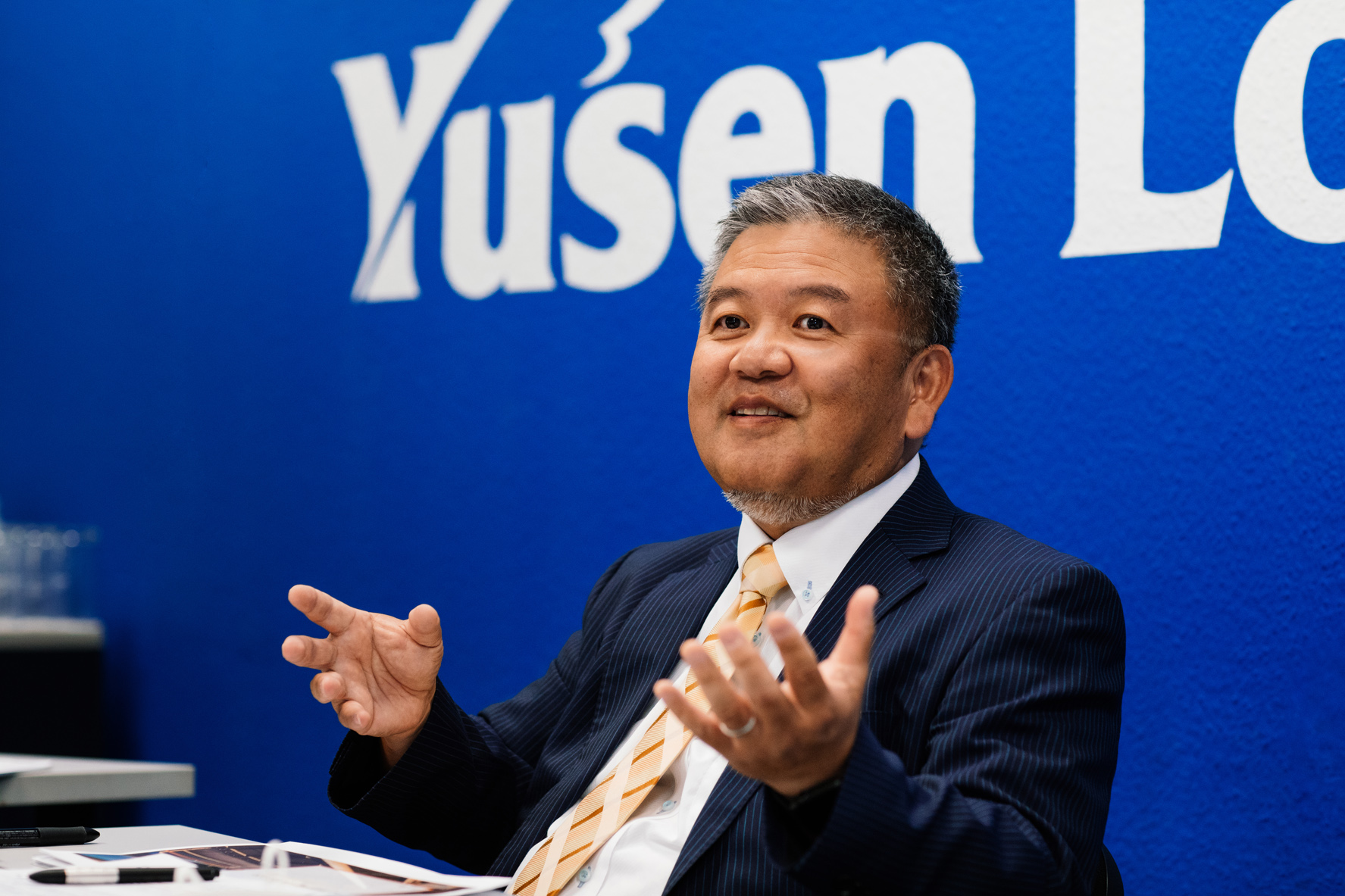
Free Subscription
“J-BIG – Japan Business in Germany” is the e-mail magazine dedicated to Japanese companies and their business activities in the German market.
J-BIG: So Yusen Logistics was established during the period of high economic growth. After that, were you affected by the collapse of the bubble economy?
Toshikazu Shiota: I did not see the situation in Japan after the collapse of the bubble economy with my own eyes because I was dispatched overseas for a long period of time. However, since our logistics business is focused on the basic and reliable business of “transporting goods”, we are relatively resilient to crisis situations, and I think we were not affected as much as IT companies, for example.
I joined Yusen Air & Sea Service in 1985 and initially worked as a sales representative for a big trading company. The main business was textile-related shipments in Osaka. At that time, very roughly speaking, our textile-related customers were mainly based in the Osaka area, automobile-related customers in the Nagoya area, and electronics-related ones in the Tokyo area. I remember that there was a desk dedicated to our company in the logistics and transportation team room of each big company’s office, and our competitors’ desks were next to it. That was not such a rare case in Japan at that time. In my fourth year with the company, I was sent to Boston, USA for 14 months as a trainee, and in 1996, I started my six-year assignment in Hong Kong. After returning to Japan, I was at the Tokyo headquarters for five years, where I established the Sales Promotion China Section and Sales Promotion and Coordination Section, and then I was stationed in Los Angeles, where I was in charge of the USA’s west coast region. After that, I gained valuable experience as the Osaka Branch Manager and in Moscow, Russia, before coming to Dusseldorf, Germany in 2018.

J-BIG: Please tell us about the transition of your company’s business.
Toshikazu Shiota: In the past, our main business was exporting raw materials and goods from Japan to countries around the world. However, in the 1980s, China promoted “processing trade”, in which countries such as the USA, many countries in Europe, and Japan supplied raw materials, parts and other goods to their own factories in China for assembling purposes and then imported the processed products. It is said that this is one of the reasons why China gained a lot of know-how and techniques that allowed them to manufacture a lot of high-tech products and high-quality home appliances, cell phones and the like. “Processing trade” has become a success model, which other countries afterwards implemented in a similar way. On the other hand, as you are probably aware, the number of factories in Japan has decreased and our business in Japan has rather shifted from export-oriented to import-oriented compared to the days when we had a lot of factories with production lines in the country.
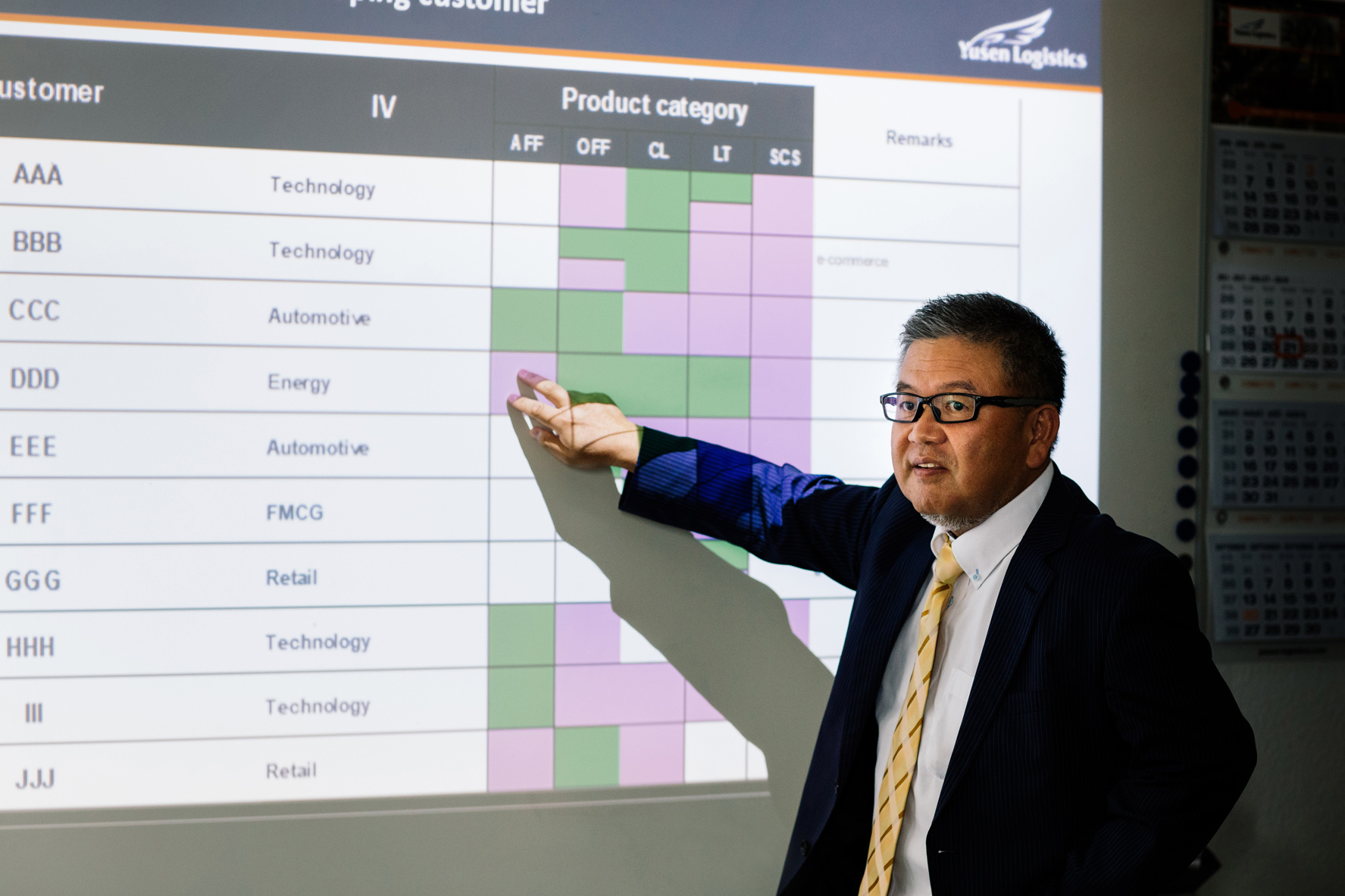
J-BIG: How did your business develop in Germany?
Toshikazu Shiota: We started with a representative office in Dusseldorf in 1974 and subsequently opened offices in Frankfurt in 1981, Munich in 1986, and Hamburg in October of the same year. The following year, on March 17th, 1987, we established Yusen Air & Sea Service in Germany and started our own operations.
As a Japanese company, and because our forwarding business has a strong network business with our own overseas bases, we have handled more Japanese companies than foreign customers. In recent years, however, we have hired many German salespersons, and as a result, the number of foreign customers has been rapidly increasing. The same applies to warehousing, where we have been expanding our inventory and storage business for foreign customers, especially German companies. As of now, non-Japanese companies have exceeded the total amount of Japanese companies in terms of sales.

J-BIG: What sets you apart from your German competitors?
Toshikazu Shiota: There are many world-class logistics companies in Germany, such as DB Schenker and DHL. The main difference between DB Schenker, for example, and Yusen Logistics is that the former acts as a mega forwarder that transports goods with its own established transportation means, while we act as a flexible customer-oriented forwarder that act as a mediator between the transportation means and the customer. Because we operate on not such a huge scale, we are able to customize our services and really tailor them to our customers’ needs – something that is rather difficult to do for big corporations. We are always striving to provide high-quality service that meets Japanese standards.
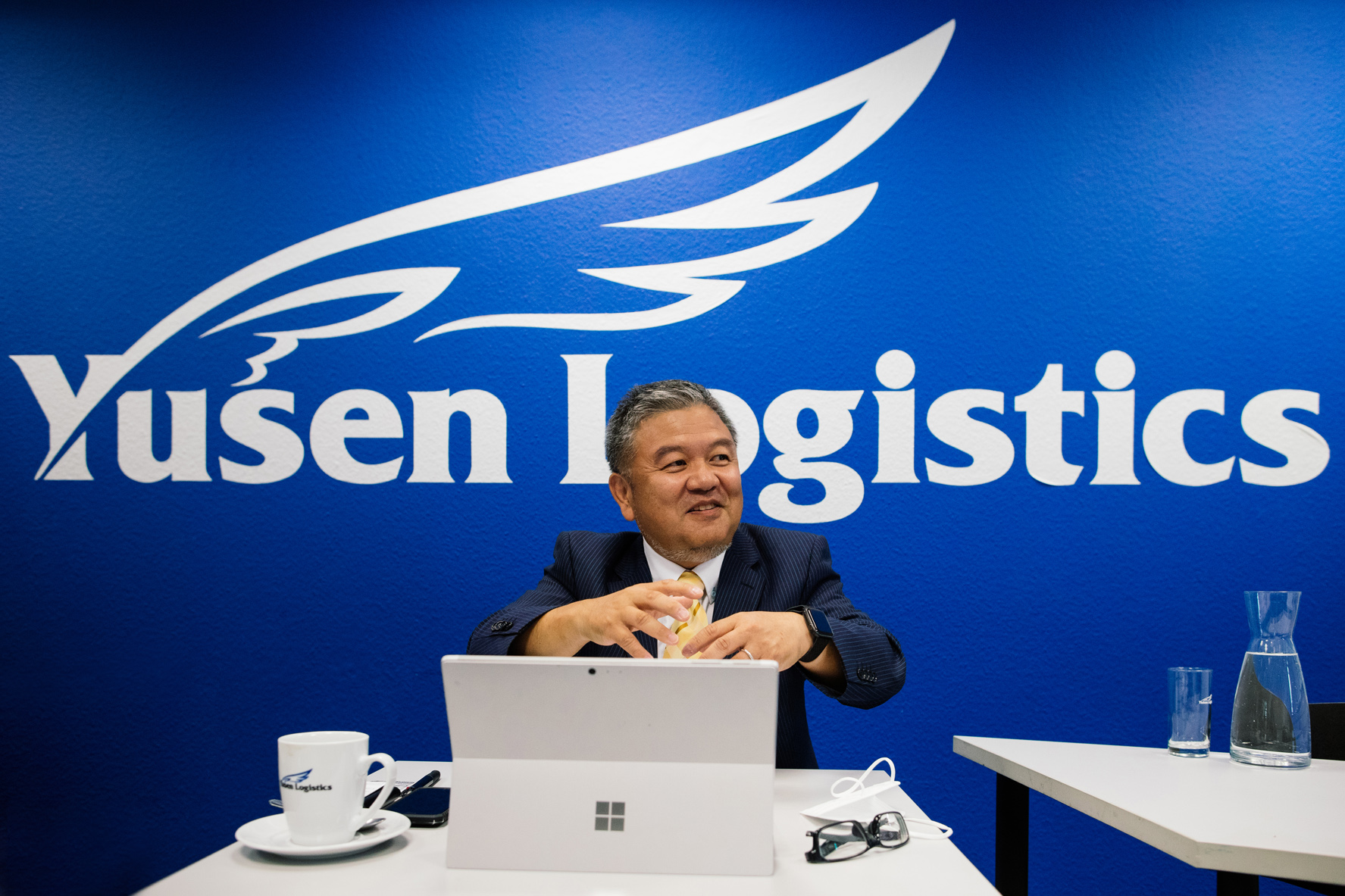
J-BIG: What is the reason you are based in Duisburg?
Toshikazu Shiota: Duisburg is home to Duisport, the world’s largest inland port. In recent years, it has become increasingly important as a logistics base due to the dramatic increase in demand for rail-related logistics in Eurasia. We believe that Duisburg is a center of gravity for logistics services in Europe, from an air as well as sea, train, and road freight standpoint. We opened our first warehouse in 1999 and Yusen Air & Sea Service is the only Japanese logistics company operating in Duisburg. At present, the warehouse has 62,000 square meters, about 6,000 of which are dedicated to hazardous goods.
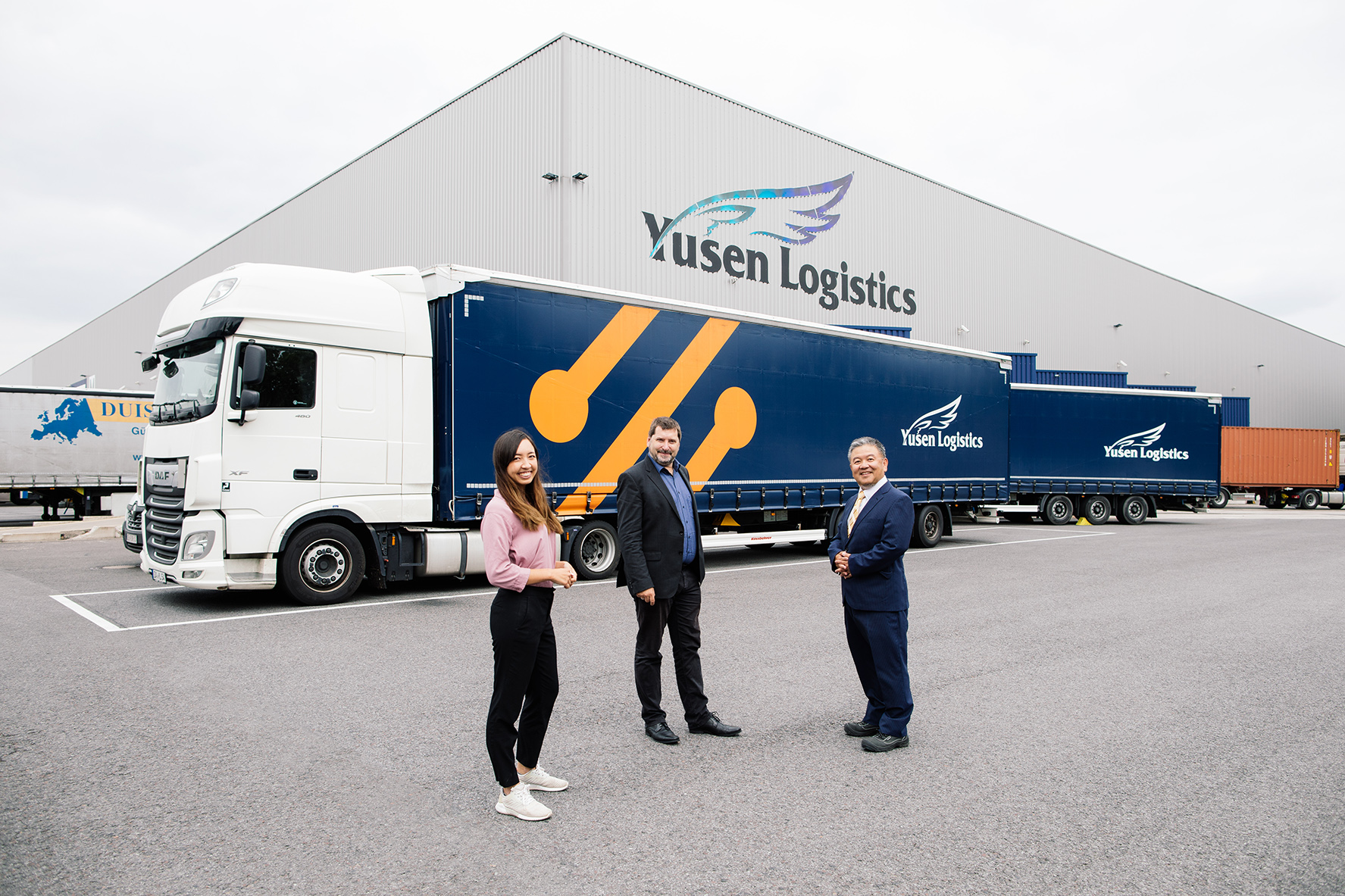
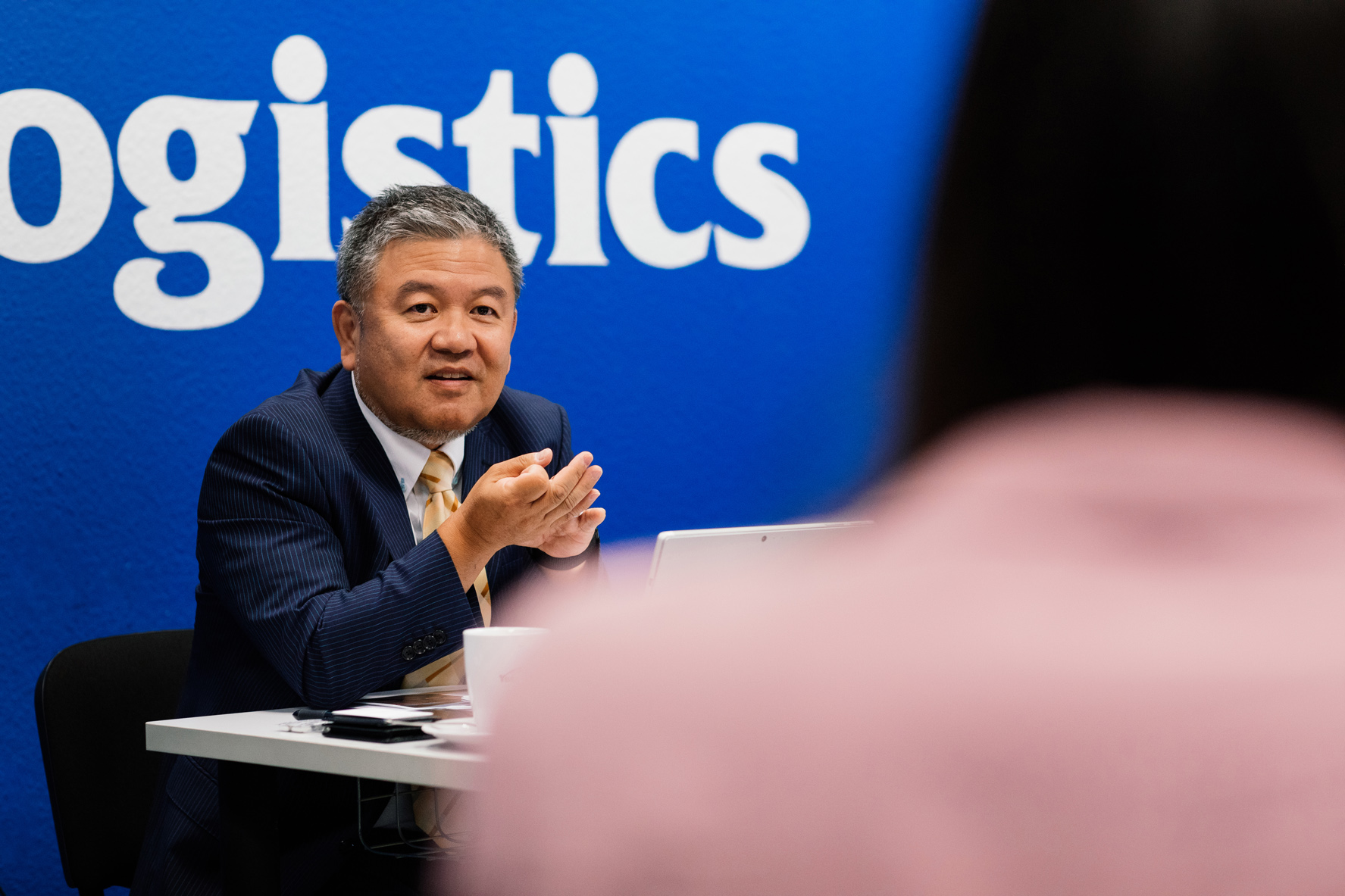
J-BIG: What is the position of the German subsidiary in the overall group?
Toshikazu Shiota: As of March 2021, Yusen Logistics group has approximately 24,000 employees in approximately 600 locations in 47 countries worldwide. In fiscal year 2020, we handled 326,000 tons of cargo by air and 723,000 Twenty-foot Equivalent Units, or TEUs for short. Non-consolidated sales for NYK’s logistics business reached approximately 600 billion yen, or approximately 4,6 billion euros, and ordinary income of approximately 27 billion yen, or approximately 207 million euros. As one of the leading Japanese international logistics service companies, we are recognized not only by Japanese but also by foreign customers.
In addition to Dusseldorf Rath, where our head office is located, we currently operate in a total of nine cities in the DACH region, including Duisburg, Langenfeld, Dusseldorf Reisholz, Hamburg, Frankfurt/Main, Alzenau, Stuttgart, Munich, and Zurich in Switzerland. We also have warehouses at each location, and our total warehouse space in Germany is currently about 160,000 square meters – about the size of 20 soccer fields. In fiscal year 2020, the German company recorded sales of approximately 160 million euros and handled 130,000 tons of air cargo and 29,000 TEUs of ocean cargo. This is one of the largest volumes handled by any of the group’s operating companies in Europe. So you can see that Germany is a very important logistics base and subsidiary in our group.
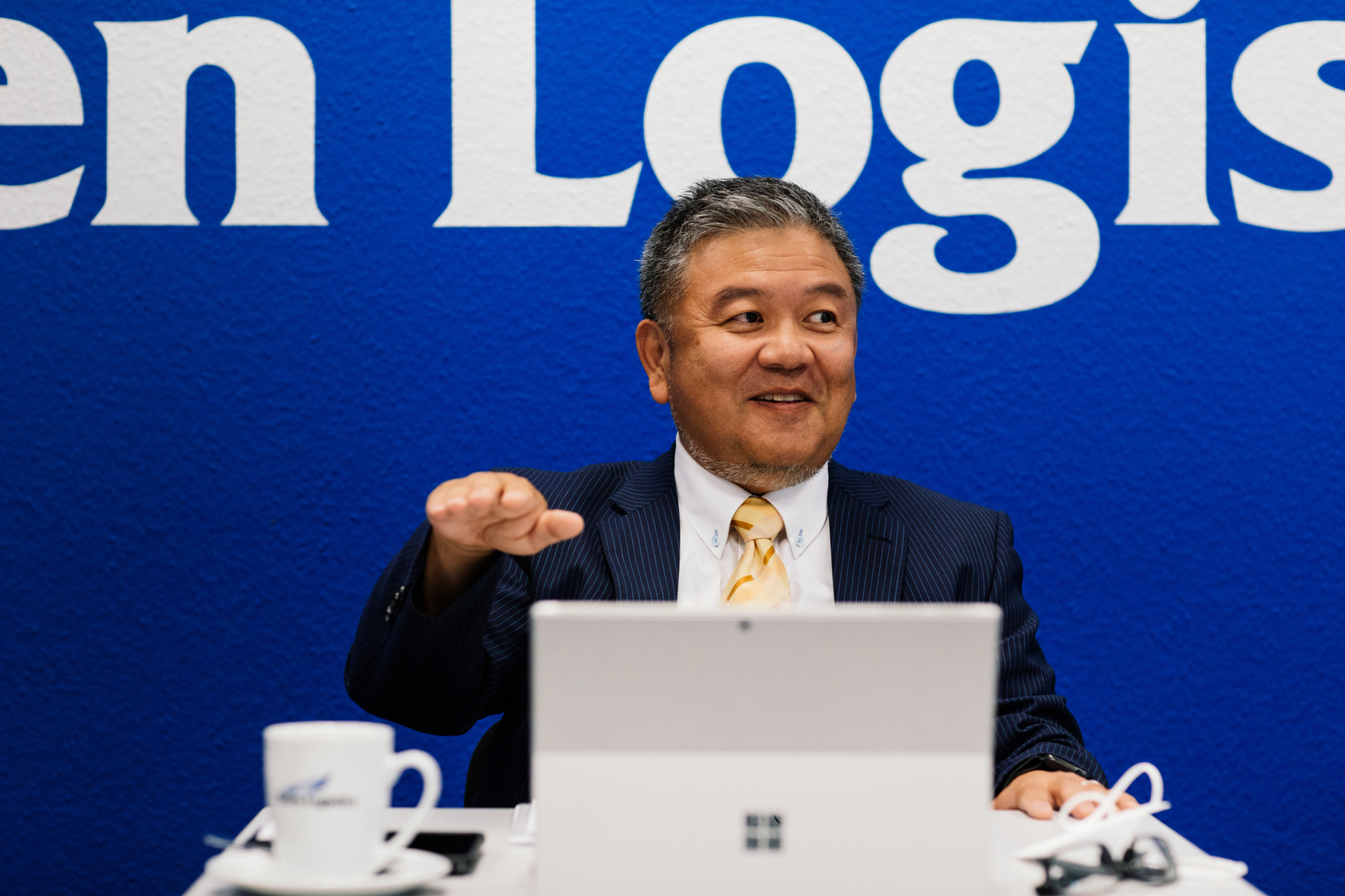
J-BIG: How do the headquarters in Japan and the subsidiary in Germany work together?
Toshikazu Shiota: The global strategy is decided by the Tokyo headquarter, but Europe has its own regional strategy. Also, since our main focus is not only on Japan, we are closely connected to European headquarters as well as the Japan headquarters.
As a result, we mainly work in cooperation with the five regional HQs and operating companies that exist around the world. This is because most of the employees of Yusen Logistics in Germany are German, and our clients are multinational companies. Since laws and regulations differ from country to country, I think it is important to have authority in our daily work and to make speedy decisions while getting the latest information from the Yusen network.
On the other hand, we provide training to our local employees on cross-cultural understanding and the Japanese way of thinking. This is not to say that Japanese service is good and German service is bad. Rather, since almost half of our customers are Japanese companies, we believe that it is necessary for German employees to understand how these customers think and what they value. For example, in Germany, an ICE train is only considered late when it arrives 15 minutes after the scheduled time. But in Japan, when a Shin-Kansen train is delayed for 60 seconds, it is considered late and an apology is issued. The fact that there is such an expectation for service in Japan is very important.
“In general, the importance of logistics as a core industrial business has been reaffirmed during the Covid pandemic. “
J-BIG: Were there any changes in the work environment due to the Covid disaster?
Toshikazu Shiota: The Covid pandemic has brought tremendous changes to our living and working environments. At our company, we have actively introduced remote working in certain departments, predominately in back-office functions. Online meetings are now the norm for internal and external meetings, and the way we work has changed dramatically.
On the other hand, operation teams that require on-site work, such as physically managing and moving cargo, continue to work. In the field, the introduction of RFID tags and the further introduction of wearable devices will accelerate the introduction of IoT services. This includes safety management and the introduction of robot equipment that enhances the efficiency of operations in the movement of goods within distribution bases. It’s unlikely that the number of workers physically on site will ever be zero.
In general, the importance of logistics as a core industrial business has been reaffirmed during the Covid pandemic. We will continue to actively introduce the latest equipment and solutions, and together with our customers, we would like to consider building SCM that can respond quickly to unforeseen circumstances.
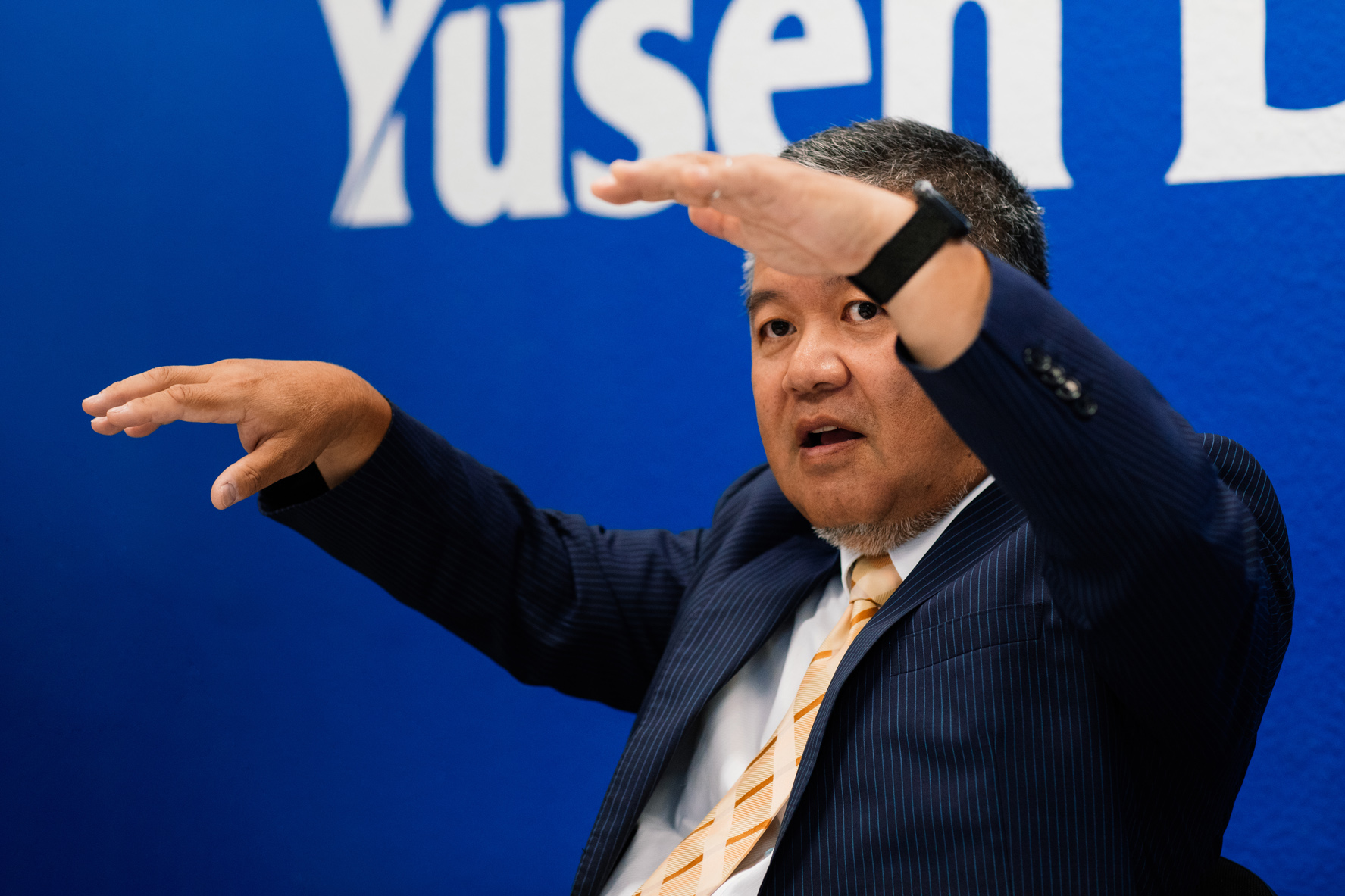
J-BIG: Please tell us about your vision for the future.
Toshikazu Shiota: In addition to our existing businesses, we will actively invest in and attract businesses with remarkable growth potential.
We have many customers in the automotive and aerospace sectors, which are major industries in Germany, and both are facing a period of change. In Germany, as in other EU countries, automakers are shifting to electric vehicles, or EVs, based on the EU’s “European Green Deal” decarbonization roadmap. Many of the components used in EVs are different from those used in internal combustion engine vehicles, and many new suppliers are emerging. We have instructed our sales departments to keep a close watch on the trends of automakers and suppliers so that they can quickly make the most appropriate proposals. We have already been able to steadily acquire long-term business related to EVs, and the seeds of success are beginning to grow.
I would be remiss if I did not also mention the business related to e-commerce. Even before Covid-19, we had been paying attention to the future potential of online shopping. We were among the first to focus on the potential demand for return logistics. Namely, goods and packages sent back by consumers, so called “Reverse Logistics”. Several years ago, we made an upfront investment by signing a strategic partnership agreement with a company that specializes in return platforms.
Specifically, we have been providing a service that allows consumers to return items to our warehouse instead of having to send them directly to the manufacturers. Here, we check the condition of the items, sort them by return destination, temporarily store them, and then send them back to the manufacturers. We also operate an inventory base for brands that handle beauty-related items, including cosmetics, which are popular and selling well, especially in Europe.
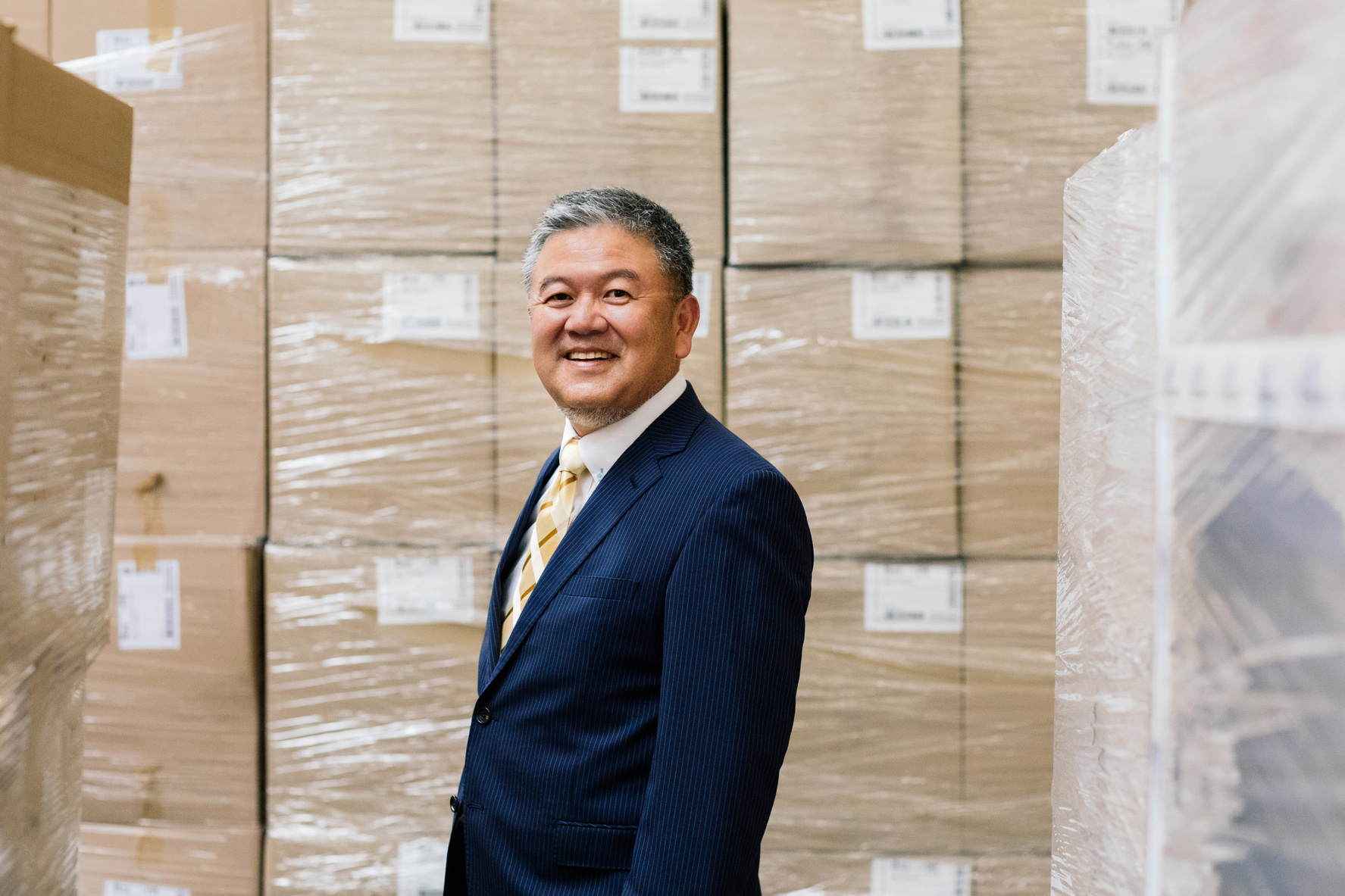
In this context, the worldwide outbreak of Covid last year and the demand for staying at home has led to a rapid increase in orders that need to be handled. As more and more people become accustomed to buying products online, we believe that this trend will not stop even if the pandemic calms down.
In addition, we have warehouses in Frankfurt and Switzerland that comply with GDP or Good Distribution Practice standards for the handling of pharmaceutical logistics, and we are rapidly increasing our business in pharmaceuticals and health care. This is due to our special know-how, including temperature-controlled transportation, and detailed preparation of shipments to and from both Japanese and non-Japanese customers. We also intend to expand our customer portfolio in the mail order and pharmaceutical businesses by investing in human resources and hiring new people to support these growth areas.
In conclusion, we will take full advantage of our logistics service portfolio, which includes air and ocean import as well as export, contract warehouse business, cross-dock service, intra-European and cross-border transcontinental truck services between China and Europe, rail service with China and Russia, and Supply Chain Solution functions including control towers. We have succeeded in providing not only a single service but multiple services to a number of customers, which not only enables us to effectively and efficiently serve our customers but also to utilize our management resources and sell our products in the same spirit. These are truly the strengths of our company.
Finally, Germany is the third largest exporter in the world after the United States and China, and from the perspective of an importer, Germany’s potential as a gateway to Europe is endless. This is an overwhelming advantage over other European countries, and we listen to our customers’ demands and continue to work with them to create optimal supply chain solutions and customer satisfaction.



